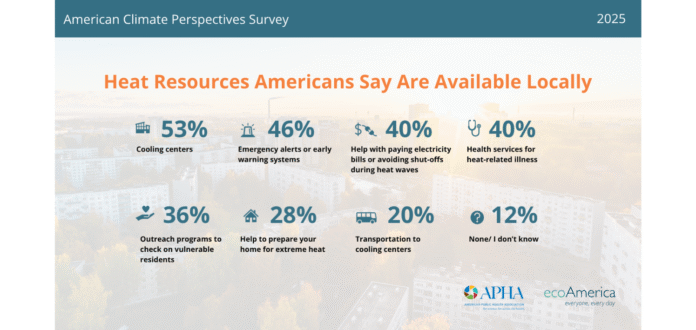"Rising Temperatures, Rising Risks: Addressing Extreme Heat as a Public Health Emergency"
Extreme Heat: A Growing Public Health Crisis
As summer temperatures soar, headlines across the United States increasingly report on record-breaking heat waves and the associated health risks. However, the phenomenon of extreme heat is no longer confined to the summer months. Climate change has exacerbated the frequency, duration, and intensity of heat events, transforming them into a year-round public health concern.
The Urgency of a Public Health Response
A recent report by ecoAmerica and the American Public Health Association (APHA) underscores the pressing need to treat extreme heat as a public health emergency. The findings reveal that while many Americans are aware of the health impacts of extreme heat, there is a significant gap in knowledge regarding local resources designed to mitigate these risks. Essential services such as access to cooling centers, emergency alerts, and financial assistance for electricity bills remain underutilized, particularly among vulnerable populations.
Dr. Georges C. Benjamin, Executive Director of APHA, emphasizes the necessity for a coordinated response: “Extreme heat is a public health issue that requires a unified and well-resourced response to reduce heat-related illnesses and deaths in all communities.” This call to action highlights the importance of collaboration among federal, state, local, and community partners to enhance preparedness and response strategies.
Vulnerable Populations at Risk
The report identifies several groups particularly susceptible to the dangers of extreme heat, including older adults, children, and outdoor workers. However, it also points out that low-income individuals, underserved communities, pregnant people, and people of color face disproportionate risks. This lack of awareness about the broader spectrum of vulnerability underscores the need for targeted public education and outreach initiatives.
Preventability of Heat-Related Illnesses
One of the most critical takeaways from the report is that all heat-related illnesses and deaths are preventable. Health professionals are uniquely positioned to lead efforts in raising awareness, improving access to resources, and advocating for policy changes that protect vulnerable populations. The report advocates for a sustained, year-round commitment to addressing extreme heat, rather than limiting efforts to the summer months.
A Call for Action
The report urges a more inclusive and proactive public health approach to extreme heat, one that matches the scale and urgency of the crisis. It emphasizes the importance of community engagement and the need for health professionals to take actionable steps in their clinics, public health departments, and communities.
For those interested in learning more about how to take action, the report provides resources such as the Extreme Heat & Health: Strategies for Prevention and Action training, available as a virtual, on-demand course.
Conclusion
As climate change continues to reshape our environment, the implications for public health are profound. The findings from ecoAmerica and APHA serve as a clarion call for a comprehensive response to the growing threat of extreme heat. By prioritizing education, resource accessibility, and community engagement, we can work towards a future where heat-related illnesses and deaths are a thing of the past.
For further insights, read the full report here.
About the Author
Amanda Li is an APHA Kaiser Permanente Community Health Fellow placed with ecoAmerica’s Climate for Health program.
Additional Resources
